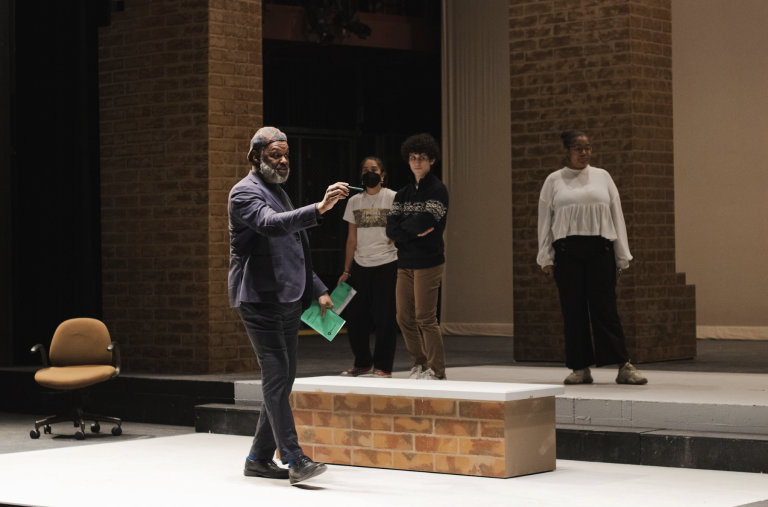TRIP SLAYMAKER ’18
A&E EDITOR
Set at the end of the upheaval years of the 1970’s, Mike Mills’ 20th Century Women tells the simple, but enjoyable story of a family living in Santa Barbara. The young man at the center of the family, and of the film’s story is Jamie (Lucas Jade Zumann), a fifteen-year-old without much going on in his life. He’s surrounded at all times by women, the most powerful of whom is his mother Dorothea (Annette Bening).
Dorothea is fifty-five, apparently a “child of the depression,” who takes every opportunity she can to instill values of respect and solid judgment into her son. Greta Gerwig plays Abbie, a young woman in her twenties who is also conscious of how the feminist and free thinking ideals she holds close to herself may rub off on the impressionable young Jamie. The third and final of the twentieth-century women is Julie; she is only seventeen, and young Jamie is hopelessly in love with her. She climbs through his window most nights to sleep in his bed and fill his brain with ideas, but their relationship goes no farther. It is exposure to these three very different uncluttered minds that helps Jamie begin to see the world differently and explore the more elusive facets of his own personality.
Mills makes use of free-floating conversation and casual impressions to make his setting feel emotionally authentic, but it is the film’s firm footing at the end of a social and political era that comes across more powerfully. With pertinent memories constantly re-emerging, Mills is challenged with the need to integrate these past moments and feelings into the film in a way that doesn’t resort to tacky flashbacks. Instead, memories are expressed by slowly moving the camera in toward the action or back from the action with a slow, almost musical regularity. This gives the film an unusual and slightly impressionistic fluidity. The exact ages of the characters is essential and mentioned in voice-over right off the bat.
Each of the women influencers draws their worldly advice not only from their own experiences of growing up and rationalizing adulthood but also from the cultures and thought processes of their respective decades. Annette Bening is a predictable standout here. She gives her moral lessons with perfect delivery and a stony-faced power that only she seems able to pull off completely. At her side, Greta Gerwig is perfectly good but seems neglected by the direction and storytelling of the movie itself. Her performance would have been more inventive had she been allotted a more central role. Much of her character’s energy is spent on Billy Crudup’s lodger character, Gerwig’s sexual acquaintance, which is a shame because it limits her. It is Elle Fanning’s stint as the teenage feminist Julie that most affects Jamie’s bildungsroman, though, as it is Jamie’s attempt at understanding her actions, emotions, and humanity that most resembles a plot.
Using the varying perspectives of the strong women in his family, Jamie is able to build a more accurate, more resonant concept of who his mysterious love interest really is, and what goes on beneath the character’s surface. Because they are seen as a somewhat unconventional family, and because they are each strongly opinionated in their own ways, 20th Century Women can only be called a success in terms of character development. At the end of the day, the film leaves one wondering if all of the discourse and conversation that makes up the movie really accomplished any movement, forward or backward. These solidly realized characters are left pretty much where we found them, for better or worse. In any event, the experience of a few days in the lives of this family is pleasant enough, and at times profound enough to make it all feel worth it. 20th Century Women will be shown at Cinestudio from Fri. May 12 to Sat. May 13.
Tuesday, January 14 2025
The Student Newspaper at Trinity College in Hartford, Connecticut




+ There are no comments
Add yours